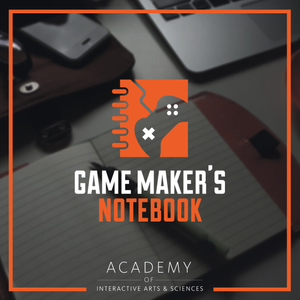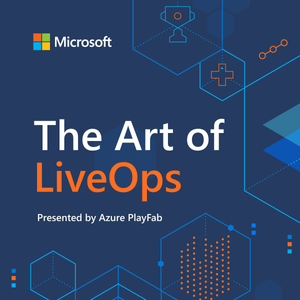
Game Theory 14: Distribution
01/22/13 • 62 min
Recorded on January 21st, 2013 with Brian Fife, James Fingal and Thomas Westberg.
Tom runs through a brief history of video game distribution, starting with arcade consoles and ending with digital distribution stores. A number of trends are identified: transition from physical (resellable) objects to software licenses, certification programs driven by the game distributors and the gradually lowering bar for distribution that now supports ‘indie’ game development.
Links to referenced items:
Super Missile Attack,
Missile Command,
Atari,
Nolan Bushnell,
Sente Technologies,
Pac-Man,
Ms. Pac-Man,
Midway Games,
Namco,
Burning Wheel,
Atari 2600,
Activision,
Imagic,
Nintendo,
Sony,
Microsoft,
Gamestop,
EA,
Deadly Towers,
Floppy Disk,
CD-ROM,
Copy Protection,
Infocom,
Where in the World is Carmen Sandiego,
Blizzard,
Diablo Three,
Sim City,
Final Fantasy,
Blockbuster,
iOS App Store,
Stardock Central,
Steam,
Amazon Kindle,
Wal-Mart,
Humble Indie Bundle,
Yohoho! Puzzle Pirates,
World of Tanks,
XBox Live,
PSN,
Nintendo eShop,
Geometry Wars,
Sega Channel,
Atari Gameline,
Temple Run,
Square,
Chaos Rings,
Nintendo DS,
PS Vita,
How long should a game be? - Tobold
Google Play,
Sideload,
Androminion,
Ingress,
Endgame: Syria
Elder Scrolls Online,
App Store Curation - Jonathan Blow,
Recorded on January 21st, 2013 with Brian Fife, James Fingal and Thomas Westberg.
Tom runs through a brief history of video game distribution, starting with arcade consoles and ending with digital distribution stores. A number of trends are identified: transition from physical (resellable) objects to software licenses, certification programs driven by the game distributors and the gradually lowering bar for distribution that now supports ‘indie’ game development.
Links to referenced items:
Super Missile Attack,
Missile Command,
Atari,
Nolan Bushnell,
Sente Technologies,
Pac-Man,
Ms. Pac-Man,
Midway Games,
Namco,
Burning Wheel,
Atari 2600,
Activision,
Imagic,
Nintendo,
Sony,
Microsoft,
Gamestop,
EA,
Deadly Towers,
Floppy Disk,
CD-ROM,
Copy Protection,
Infocom,
Where in the World is Carmen Sandiego,
Blizzard,
Diablo Three,
Sim City,
Final Fantasy,
Blockbuster,
iOS App Store,
Stardock Central,
Steam,
Amazon Kindle,
Wal-Mart,
Humble Indie Bundle,
Yohoho! Puzzle Pirates,
World of Tanks,
XBox Live,
PSN,
Nintendo eShop,
Geometry Wars,
Sega Channel,
Atari Gameline,
Temple Run,
Square,
Chaos Rings,
Nintendo DS,
PS Vita,
How long should a game be? - Tobold
Google Play,
Sideload,
Androminion,
Ingress,
Endgame: Syria
Elder Scrolls Online,
App Store Curation - Jonathan Blow,
Previous Episode

Game Theory 13: Game of the Year
Recorded on January 7th, 2013 with Brian Fife, James Fingal, and Thomas Westberg.
Jim, Brian and Tom start the new year with new audio equipment, a stack of new games to play and a summary of the top/memorable games of 2012.
When forced to summarize the year in gaming, the group talks about the development of conceptual / experimental indie games in the vein of Journey and Unfinished Swan, as well as a rash of kickstarter games and retro-remakes.
Links to referenced items:
Assassin’s Creed Three,
X:Com: Enemy Unknown,
Halo Four,
Dishonored,
The Walking Dead (Video Game),
The Walking Dead (Hardcover),
Dog Slippers,
Comet’s Tale,
Gotye,
PAR’s Gaming Canon,
Ars’ Games of the Year,
Beverly Hillbillies,
Journey,
thatgamecompany,
World of Tanks,
Diablo Three,
Super Hexagon,
Fez,
Mark of the Ninja,
Letterpress,
Words with Friends,
Killzone Three,
Kinect Party,
Just Dance Four,
Waking Mars,
Pikmin,
Nihilumbra,
Indie Game: The Movie,
The Unfinished Swan,
Narbacular Drop,
Nvidia Shield,
Nintendo Land,
ZombiU,
Big Picture,
FTL,
Fever,
Mega Mano-a-Mega Mano,
Reeder,
Sony RFID - Ars,
New Siracusa County Bros. U.
Next Episode

Game Theory 15: Design Innovation
Recorded on February 11th with Brian Fife, James Fingal and Thomas Westberg.
This is not the oft-promised indie episode - it is something much better! When thinking about what he liked about indie games, Jim realized the aspect that he wanted to discuss was the innovative design elements in many of his favorite games.
Innovative games often represent a thought experiment or a deliberate isolation or exaggeration of a specific game mechanic or component. This means that often, short form and indie games are the right format for this investigation.
Brian also finally gets to complain about pixel art, and Tom startles the group with a shocking (ok, mildly interesting) confession.
Referenced items:
Match Three Game,
Portal,
Pong,
Doom,
Outsider Art,
Legend of Zelda,
Super Mario Bros.,
Dune Two,
Literature of Exhaustion,
Memento,
Tower Defense,
Bejeweled,
Limbo,
Fl0w,
Osmos,
Ingmar Bergman,
Stephen Merchant,
Electroplankton,
Biophilia,
Sonic the Hedgehog,
Alien vs. Predator (FPS),
Journey,
Left 4 Dead,
Halo,
Hundreds,
Galcon,
ToeJam and Earl,
Earthworm Jim,
Battletoads,
World of Goo,
Shadow of the Colossus,
Ico,
Kinectimals,
Kinect Party,
Mario Party,
WarioWare,
Kongregate,
Raving Rabbids,
Mirror’s Edge,
Dungeon Keeper,
Holy Invasion of Privacy, Badman,
Hoard,
Starcraft,
Sim Life,
Spore,
Eve Online,
Red Dead Redemption,
World of Tanks,
Half Life,
Counter-Strike,
X-Com: UFO Defense,
X...
If you like this episode you’ll love
Episode Comments
Generate a badge
Get a badge for your website that links back to this episode
<a href="https://goodpods.com/podcasts/game-theory-podcast-27294/game-theory-14-distribution-951861"> <img src="https://storage.googleapis.com/goodpods-images-bucket/badges/generic-badge-1.svg" alt="listen to game theory 14: distribution on goodpods" style="width: 225px" /> </a>
Copy




